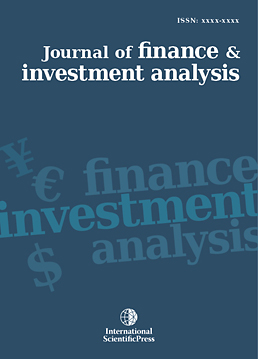Journal of Finance and Investment Analysis
Measuring the degree to which probability weighting affects risk-taking Behavior in financial decisions
-
 [ Download ]
[ Download ]
- Times downloaded: 11745
-
Abstract
The paper investigates the importance of probability weighting in financial decisions and examines the degree to which risk-taking behavior deviates from expected utility theory in the presence of probability weighting. A group of professional traders participates in an experiment, whose data are used to calculate risk and uncertainty premiums. This framework allows measuring and disentangling the impact of probability weighting on risk perceptions and behavior. Several findings emerge. Professional traders exhibit probability weighting which has a substantial and heterogeneous effect on behavior. Probability weighting affects traders’ perceptions of their own risk attitude more intensely than it affects their actual behavior. Finally, risk-averse or risk-seeking behavior is more intense under conditions of uncertainty than it is under conditions of risk. These findings are consistent with previous studies, but provide new insights on several dimensions of trading decisions, and offer insights into market movements.
